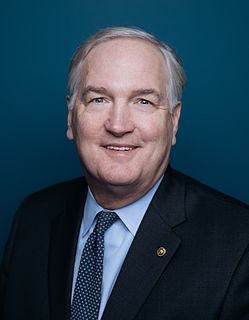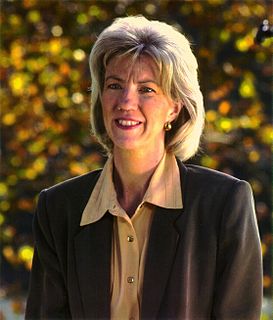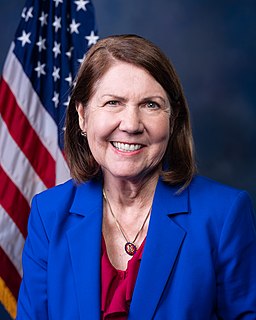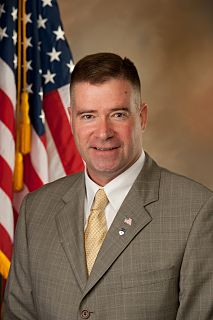A Quote by Barack Obama
Under my plan of a cap and trade system, electricity rates would necessarily skyrocket… Because I’m capping greenhouse gasses, coal power plants, natural gas…you name it…whatever the plants were, whatever the industry was, they would have to retro-fit their operations. That will cost money…they will pass that money on to the consumers.
Related Quotes
A cap and trade bill will likely increase the costs of electricity. . . . These costs will be passed on to the consumers. But the issue is, how does it actually...how do we interact in terms with the rest of the world? If other countries don't impose a cost on carbon, then we would be at a disadvantage. . . . We should look at considering duties that would offset that cost.
Obama came in really wanting to change things, but he hit a wall of corporate money, oil and coal money: when he tried to pass the Cap and Trade system of pharmaceutical money, when he tried to pass the Obamacare - which, of course, then got watered down into a much less effective, much less economical, program.
Letting the perfect be the enemy of the good is one of the reasons we have a coal-dependent infrastructure, with the resulting environmental impact that all of us can see. I suspect environmentalists, through their opposition of nuclear power, have caused more coal plants to be built than anybody. And those coal plants have emitted more radioactive material from the coal than any nuclear accident would have.
The simplest way to remove carbon dioxide, the main greenhouse gas, is to grow plants - preferably trees, since they tie up more of the gas in cellulose, meaning it will not return to the air within a season or two. Plants build themselves out of air and water, taking only a tiny fraction of their mass from the soil.
Today, natural gas now outstrips coal as the leading provider of electricity in America. If this is as big as people believe it is, natural gas will soon be powering trucks and marine ships. Maybe even standard commercial cars that people use at home through compressed natural gas, other gas to liquids. The potential is there for more energy independence by America and a reliance on cleaner fuel - natural gas emits half as much as coal, in terms of carbon emissions. That's a real bounty.
Coal ash gets far less attention than toxic and greenhouse gas emissions from power plants, but it has created environmental and health problems - every major river in the Southeast has at least one coal ash pond - and continuing legal troubles and large cleanup costs for the authority and other utilities.
The EPA's [Clean Power Plan] is another example of Washington's lack of understanding when it comes to rural and Western energy issues. I oppose this new rule because it hurts my district, which has four coal-fired plants that power Arizona's big cities, small towns, businesses and residences. These plants also provide good-paying jobs in our tribal and rural regions.
It is very different to make a practical system and to introduce it. A few experiments in the laboratory would prove the practicability of system long before it could be brought into general use. You can take a pipe and put a little coal in it, close it up, heat it and light the gas that comes out of the stem, but that is not introducing gas lighting. I'll bet that if it were discovered to-morrow in New York that gas could be made out of coal it would be at least five years before the system would be in general use.
That is simple. In the Colonies we issue our own money. It is called Colonial Scrip. We issue it in proper proportion to the demands of trade and industry to make the products pass easily from the producers to the consumers. In this manner creating for ourselves our own paper money, we control its purchasing power, and we have no interest to pay.
































